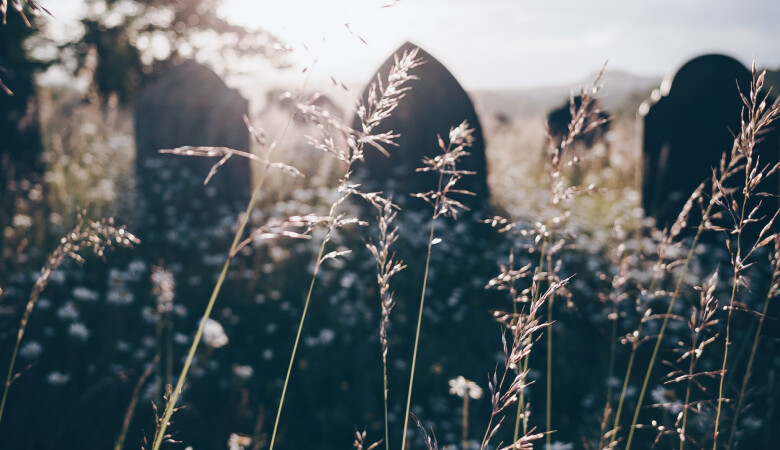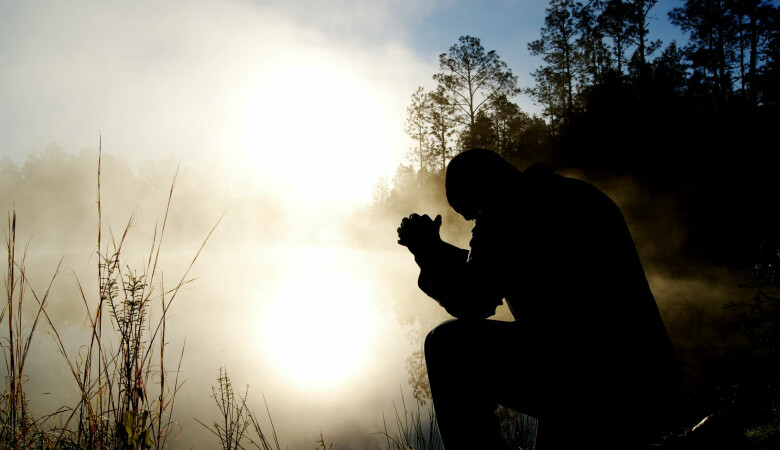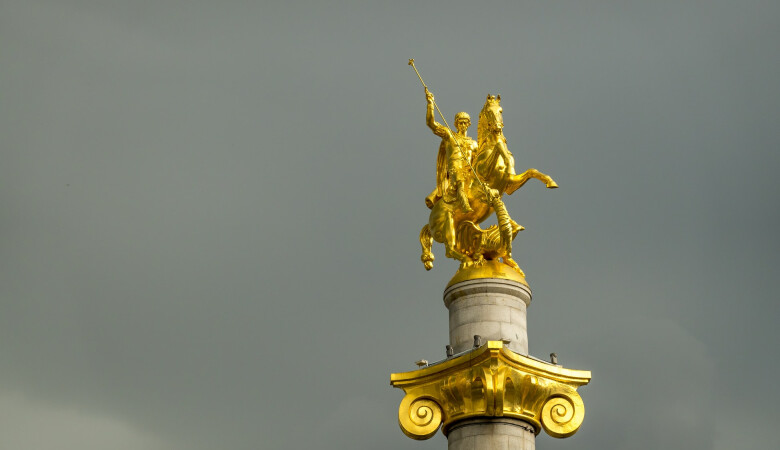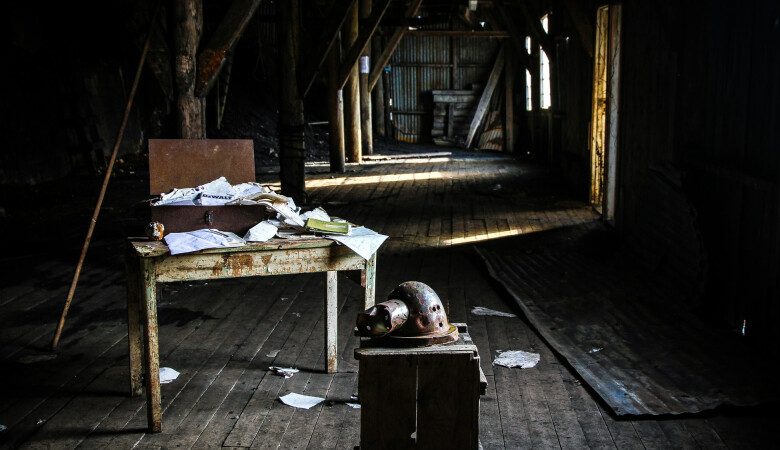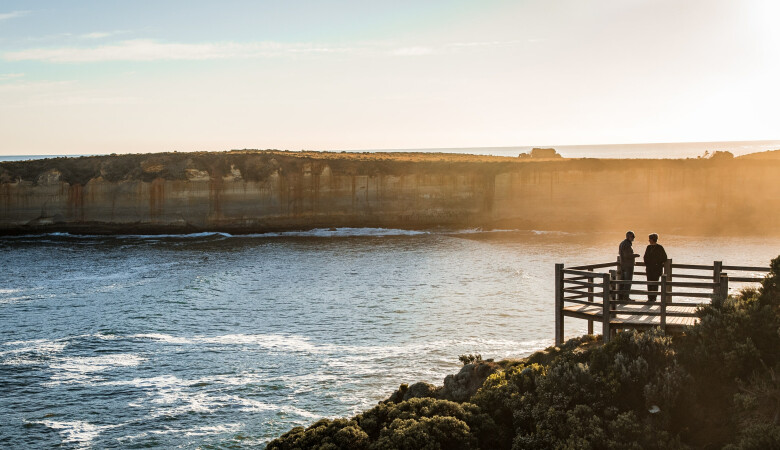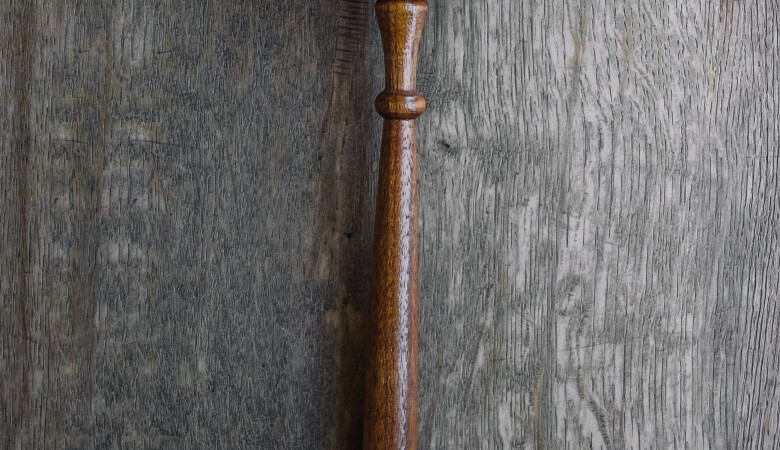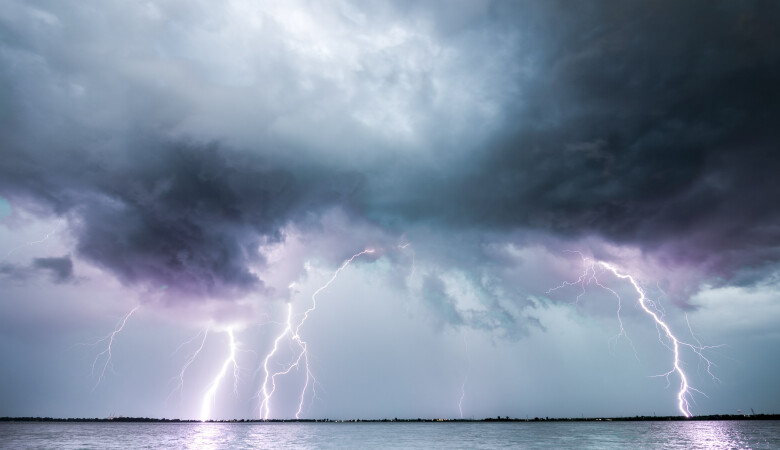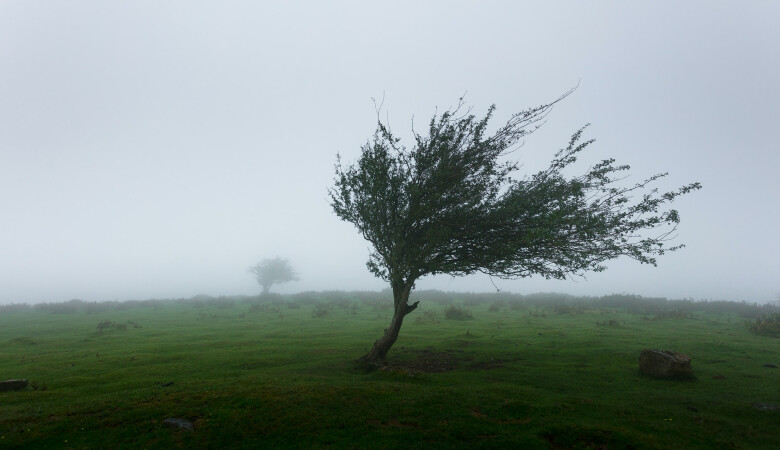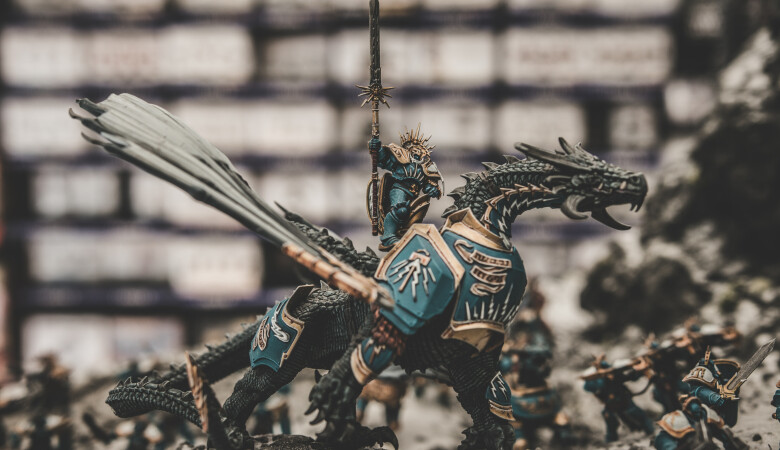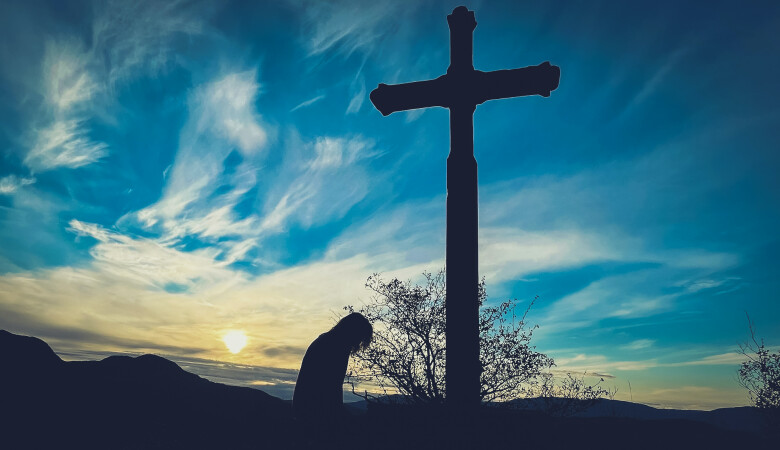Series: Job
If a Man Dies, Will He Live Again? (Job Sermon 10)
May 02, 2021 | Andy Davis
Job 14:14
Resurrection
Pastor Andy Davis preaches a sermon on Job 14:14. In this verse, Job asks what will happen after death - the fundamental question of our mortal lives. Job presents his view of the afterlife, although he was a better man than any of us will ever be, we have a better hope than he ever had.
- SERMON TRANSCRIPT -
Well, I'm just crackling with energy to preach this sermon to you today. I've been thinking about this one question, it began somewhat academically for me, but began to emerge as one of the key questions in my entire studies in the book of Job. And the question had to do with what did Job believe about the resurrection? And to try to understand that, and to go through his various statements, and to feel the weight of them, and to look at the words honestly, and to do it with some evangelical commentators in the book of Job, and be troubled by the fact that as they wrote their commentaries, it seemed that they'd forgotten about Jesus, that bothered me. And I wanted to look at the Old Testament through the lens of the New Testament. The surest interpretation of the Old Testament is always the New Testament. And I wanted to bring that to bear, but there were just significant issues as we walked through.
And now last week I shared with you the conviction I have that in the wisdom of God through the power of the Holy Spirit as he assembled the cannon of the 66 books of the Bible. One of the reasons he has given us the book of Job is that we as believers in Jesus Christ can say, Job 13:15, as it appears in all of the English translations, as, “Though he slay me yet will I hope in him." But you must know foundational to that testimony is a belief in resurrection from the dead. Hope is a feeling in the heart that the future is bright based on the promises of God. We must have a hope in the resurrection in order to be able to make that assertion. No matter what happens in my earthly life, no matter what happens with my possessions, no matter what happens with my loved ones, no matter what happens with my health, even if I die, I'm going to hope in God. What is the basis of that but the resurrection of Jesus Christ from the dead.
And so for me, it is a challenge. It's a challenging book, hermeneutically, interpretatively. I want to share with you the fruits of my meditations, but I also want to teach you as readers of the Bible for yourselves, what to do with the book of Job. How, first of all, not to skip it, but first two chapters, exciting, last few chapters, great, middle…hmm. Lots and lots and lots. One dear sister said, "Boy, there's a lot in Job, isn't there?" Yeah, there is. What a long book, and the details. But to deal with it honestly, and to try to walk through it. And we come this morning to Job 14:14, the question that Job asked, "If a man dies, will he live again?" It's a fundamental question of our mortal lives isn't it? Is this world all there is? Does death actually end everything?
Are we truly, in the end, just an assemblage of atoms that when disassociated from one another cease to exist as life, whatever life is? Are our hopes, and dreams, and thoughts, and feelings merely biochemical illusions that will end when the chemicals can no longer react like that? Is it really like the brilliant cosmologist atheist, Stephen Hawking, said before he died, "I regard the brain as a computer which will stop working when its components fail. There is no heaven or afterlife for broken down computers; that is a fairytale for people afraid of the dark." Many people think that. Is there hope beyond the grave? Or as Job puts it plainly, "If a man dies, will he live again?"
Now for us as Christians, we have the answer to that question. The resurrection of Jesus Christ, the bodily resurrection of Christ from the dead is the single most significant event in all of human history. The empty tomb, the mysteriously vacant grave clothes, stone rolled away. Then even more, the resurrection appearances as he appears to the women, and as he appears to the apostles in the upper room, and as he appears to more than 500 eyewitnesses, and as he shows them the evidence of his death on the cross and of his resurrection. That single event, all the evidence written for us in the pages of the New Testament, changes everything for us.
Now, the challenge for us in the book of Job is to understand Job's perceptions of the afterlife, but to do so in light of what Christ has accomplished for us. Now, today, I'm going to argue one central proposition, one thesis. And here it is: Job was a better man than any of us will ever be, but we have a better hope than he ever had.
"Job was a better man than any of us will ever be, but we have a better hope than he ever had."
I want to tell you the story about that proposition. This is a funny story, it wasn't in my outline. I actually don't care how long the sermon is, but I do, but I don't. Anyway, I was driving home from an elders meeting, I was talking to my son, Calvin, and those words popped in my mind, I was talking about Job and the rumination I've been doing on this question. And I said, "Job is a better man than will ever be, but we have a better hope than he ever had." And then I just stopped, I said, boy, that was good. I said, "Calvin, write that down and text it to me." Because I was driving in the dark I couldn't do anything about it. So he did. That's the way I didn't forget it.
What do I mean by Job was a better man than will ever be? If you had Job's level of hope you would not have done so well. You would not have been so loyal to God. You would not have handled it as well as he did. You would not be the one human being on planet earth that God boasted about to Satan. You just wouldn't have done as well as him. His piety, his godliness, his care for the widow and the orphans, all of his credentials are in order, Job 31 will make that plain, I believe every word there. That's the man he was: better than us. But we can hope better than he did.
And I think in the overall 66 books of the Bible, as God and his wisdom, his eternal wisdom, he's chosen what books to give us. And as we believe in a progression and unfolding of wisdom, and understanding, and comprehension from the first statement in the garden of Eden about the seed of woman crushing the serpent's head, what does that mean? And then things unfolded, God gave more and more and more light to his people, it just unfolded. We have a record of that unfolding. We have these 66 books. I've come to realize that the point of it all is to bring us to saving faith in Jesus Christ. And as a part of that, to give us a vibrant, energetic hope, that totally affects how we live our lives here on earth, makes us fruitful, makes us light shining in a dark place until finally we're done with our days here on earth and go to the heaven he's prepared for us. That's what the Bible is given to do for us. And each book of the Bible has its role to play.
So a number of years ago, I saw this insight concerning the book of Ecclesiastes. Now I add a paired or matched statement with the book of Job. The book of Ecclesiastes it's ‘vanity of vanity's, life is empty, it's meaningless, everything that we do ends up dust in the wind,’ that's the theme of the book of Ecclesiastes. And then Job thrashing around from time to time, saying openly insulting things about God, like the end of chapter 14, when he says that God just levels men's hopes. And he says those kinds of things, and then other times speaks as someone who does believe in life after death and all that. So here are my paired statements: The book of Ecclesiastes is what life would look like if there were no resurrection from the dead. It's all in vain. But Paul has told us that because Christ has risen our labor in the Lord is, what? Not in vain. That's the answer to Ecclesiastes. Then the book of Job is what suffering would look like if there were no resurrection from time to time. So I just give you that going forward, as you have opportunity to read those books.
Christ has risen. We get to say that. We get to face suffering in this world, maybe less than Job, but whatever God brings in our lives, we get to face it with the knowledge that this world is not all there is, and there is a glorious heaven yet to come. And so 1 Corinthians 15:20 says, "Christ has indeed been raised from the dead, the firstfruits of those who have fallen asleep." We have that as a statement of a historical fact that's already occurred. Job didn't have either the statement or the fact yet.
I. Job’s Struggle with Doubt
All right. So let's walk through Job’s struggle with doubt. What did Job really believe about the grave? He posed a question here, which I've already quoted a couple times, Job 14:14, "If a man dies, will he live again?" It is not entirely clear that he believed the answer was yes, not in this chapter anyway. Look back at verses seven through 12, which you just heard Mike read for us, "At least there is hope for a tree: if it is cut down, it will sprout again, and its new shoots will not fail. Its roots may grow old in the ground and its stump may die in the soil, yet at the scent of water it will bud and put forth shoots like a plant. But man dies and is laid low; he breathes last and is no more. As water disappears from the sea or a riverbed becomes parched and dry, so man lies down and does not rise; till the heavens are no more. men will not awake or aroused from their sleep."
It's like Job is saying that a tree that is felled is better than a man who dies. Trees have been known to recover. Buds come up from the hidden subterranean root system, and a tree has a second life. But the man, when he dies, you never see him again, to the end of history. So then two verses later, “If a man dies, will he live again?” After that, I'm thinking, I don't think he knows. Or right now it seems like he thinks the answer's no. And this is just evidence of what pain can do to a mind, what afflictions can do to our soul. It is possible for us to be moved off of convictions that we have through our pain and our suffering and have moments like this. That's part of the function of the book of Job, to make you realize what it's going to be like to fight the battle of pain.
Now, along with this comes the theology of Sheol, the Hebrew word for the grave. There's a lot of issues with Sheol, what did they believe? What is it? What is the grave to the Hebrew mind? So if you go back, you don't have to turn there, but just listen. Job 7:9-10, he says, "As a cloud vanishes and is gone, so is he who goes down to the grave, he does not return. He will never come to his house again; his place will know him no more." Job 10:20-22, he says, "Are not my few days almost over? Turn away from me," he says to God, “Turn away from me so I can have a moment's joy before I go to the place of no return, to the land of gloom and deep shadow, to the land of deepest night of deep shadow and disorder, where even the light is like darkness.”
A few chapters later, Job 17:13-16. It says, "If the only home I hope for is the grave, if I spread out my bed in darkness, if I say to corruption, ‘You are my father’ and to the worm, ‘My mother’ or ‘my sister,’ where then is my hope? Who can see any hope for me? Will hope go down to the gates of death? Will we, hope and I descend together into the dust?" That's just poetical hopelessness friends. In none of Job's assertions like this, about death and the grave is it certain that he has any clear view of resurrection. He doesn't talk about it. Just darkness.
Now there is one statement that he makes in chapter 19, probably the most famous statement in the book. You can turn ahead and look there if you want. Job 19:25-27, there Job says this, "I know that my Redeemer lives, and that in the end he will stand upon the earth. And after my skin has been destroyed, yet in my flesh I will see God; I myself will see him with my own eyes—I and not another. How my heart yearns within me!" Now I'm going, God willing, to have the opportunity to preach on that chapter in due time. And that statement in due time, but I want to reach ahead for it and say that's I think his best testimony connected to resurrection.
Some of you who know and love classical music Handel's Messiah is one of the greatest pieces of classical music ever written. And the climax of Handel's Messiah of course, is the “Hallelujah Chorus.” People know that very well. Sing it at Christmas time. But in the Messiah, there's a piece right after that, a sweet soprano aria based on this text in the KJV. “I Know That My Redeemer Liveth.” It's one of the sweetest pieces of music I've ever heard. And only a genius Handel would know what to do after the “Hallelujah Chorus.” I mean you just end it. All right, we're done, go home. But no, he comes back with this incredibly sweet-sounding meditation on resurrection. KJV text says, “The worms destroy this body yet in my flesh, I shall see God.”
Now, like I said, I'm going to deal with that amazing statement in due time. I don't want to break off and preach on that. It's a great text. But I would say it's enough to say that his view, his idea of life beyond the grave was in his mind at that point in a positive way, but other times not. So in and out inconsistent and frankly, even in that statement, it's unclear what he's meaning by it. Is he looking at healing, he's going to be healed in the end, God's going to swoop in at the last minute and heal his body? Which he does do at the end of the book. Even if Job were not thinking only of present physical healing, he may have only had a view of resuscitation, a kind of renewal back into the physical life he's always known, of continued extended long life in this present form.
II. Old Testament Heroes Hoped for the Next World
I don't believe any Old Testament hero had any vision of the resurrection bodies such as we have today. So let's talk about those Old Testament heroes and what they hoped for in this world concerning the future world. Take for example, Abraham, you remember how God commanded Abraham to sacrifice his son, his own son, his only son, Isaac, whom he loved? Offer him as a burnt offering, some place that God would show him? And he went off on a three day journey with his son and with some servants. And when he reached Mount Moriah, where he was to obey God's command, he said to his servants in Genesis 22:5, “Abraham said to his servants, "Stay here with the donkey while I and the boy go over there. We will worship and then we will come back to you." Wow. It's interesting moment. What was he thinking? Well, the author to Hebrews tells us what he was thinking. In Hebrews 11:17-19, it says, "By faith Abraham, when God tested him, offered Isaac as a sacrifice. He who had received the promises was about to sacrifice his one and only son, of whom God had said to him, “It is through Isaac that your offspring will be reckoned. Abraham reasoned that God could raise the dead and, figuratively speaking, he did receive Isaac back from death.”
All right, so he had a view of the possibility of resurrection after death. But I think even then, home based to the Genesis 22 account is he imagined that Isaac would just come back to life again after Abraham had killed him in the same form and pattern he was in before, “I and the boy will go worship and we will come back.” He will still be a, I don't know, a young teenage boy in the same body after that event.
And so as you look at the theology of Sheol of the grave, not just in Job, but in the Psalms, it seems to be a consistent question. Like Psalm 6:5, it says, “For in death there is no remembrance of you; in Sheol who will give you praise?" The people in Sheol don't remember and they don't praise. And then Ecclesiastes 9:10 says, "Whatever your hand finds to do, do it with your might, for there is no work or thought or knowledge or wisdom in Sheol, to which you are going." So whatever you have in mind to do, do it now, because when you go to the grave, that's all done. And then Hezekiah said in Isaiah 38, when he was facing his own death through illness and then God healed him miraculously. He said this, Isaiah 38:18-19, “For Sheol,” the grave, “Sheol does not thank you; death does not praise you; those who go down to the pit, do not hope for your faithfulness. The living, the living, he thanks you as I do this day.” So God, if you want praise, keep us alive.
Just between us, I'm going to tell you, I think the praise God has up in heaven is better than whatever we do here on earth. That's no offense to Wes and his team at all, you do a great job brother, but I just think this is a dim dress rehearsal of what kind of worship and praise is going on up there. And we're going to enjoy that. But Hezekiah doesn't seem to have a vision of that. Now the best we can say comes from Hebrews 11:13-16, all of these heroes of the faith had some kind of vision or understanding of life after death. The author writes in Hebrews 11:13-16, “All of these people,” these heroes of the faith, “Were still living by faith when they died. They did not receive the things promised; they only saw them and welcomed them from a distance. And they admitted that they were aliens and strangers on earth. People who say such things show that they're looking for a country of their own. If they had been thinking of the country they had left, they would've had opportunity to return. Instead,” says Hebrews 11:16, “They were longing for a better country—a heavenly one. Therefore God is not ashamed to be called their God, for he has prepared a city for them." So they at least had some dim view of a life-after-death world back in those days, in the old covenant days.
Now listen, as I was doing all of this and getting so incensed that these supposedly evangelical commentaries on Job, that don't seem to know anything about Jesus and I've stopped reading some of them, I'm done. It just stirs me up. It gets me angry. And I shouldn't be in that state when I'm writing a sermon. Amen? So I just set him aside. I'm a Christian, I'm going to read Job like a Christian, but I realized that I was being too loyal to Job and trying to protect him too much, I just need to let Job say what he said. My loyalty is to Jesus, and to him we give first place. And then you know who helped me with this? Athanasius. I was reading Athanasius on the incarnation. Now, Athanasius lived in the 4th century AD, three and a half centuries after Jesus died and ascended, rose again and ascended. And so that was at the end of the time, the era of the Roman persecution, it was done. Constantine had declared himself to be a Christian, Athanasius came after that. And he was defending the Orthodox doctrine of the incarnation against Arianism, the heresy we now know in the form of the Jehovah's Witness, deep teaching, that Jesus is God's greatest created being.
So he was fighting that and he wrote this incredible book on the incarnation. And this is what he wrote, "Before the divine advent of the Savior, even the holiest of men were afraid of death and mourned the dead as those who perish." That's Job. They feared death and they mourned dead people pretty much like people who had no hope. Athanasius said, "But now that the Savior has raised his body, death is no longer terrible, but all those who believe in Christ tread it underfoot as nothing, and they prefer to die rather than deny their faith in Christ, knowing full well that when they die they do not perish, but live indeed and become incorruptible through the resurrection." Listen to this, Athanasius, "Death has now become like a tyrant who has been completely conquered by the legitimate monarch; bound hand and foot as he now is, the passers-by jeer at him, hitting him, and abusing him, no longer afraid of his cruelty and rage because of the king who has conquered him. So death has been conquered and branded for what it is by the Savior on the cross. It is bound, hand and foot, all who are in Christ trampled death as they pass by and as witnesses to him deride it, scoffing and saying, "Where O death is your victory? Where O grave is your sting?"” Well, that's good writing friends, it's even better theology. Death has been defanged, death has been conquered, death is in a cage, death has been conquered and we don't need to be afraid of it anymore.
So we don't want to give the top honor to the hero Job. He did better than any of you would've done under the circumstances, but he was an Old Testament saint who did not have the clear hope in resurrection that we have. Because the Son of God had not yet triumphed, his hope, Job's hope, therefore, was small and pale, and indistinct and vacillating compared with what ours should be. Even the most insignificant Christian today has every reason to have a vastly superior hope in resurrection than that of Job. So, as we've said, Job was a better man than any of us will ever be, but we have a better hope than ever he had.
"So we don't want to give the top honor to the hero Job. He did better than any of you would've done under the circumstances, but he was an Old Testament saint who did not have the clear hope in resurrection that we have. "
III. A Better Hope is Introduced
Now let me take that last statement and root it in Scripture. And for that, we go to the book of Hebrews. A better hope, let's talk that phrase, it's biblical, it's a biblical phrase. Hebrew 7:18-19 is talking about the Mosaic Covenant, Old Testament, regulations, all of that. The author to Hebrews writes these words, Hebrew 7:18-19, "The former regulation is set aside because it was weak and useless (for the law made nothing perfect) and a better hope is introduced, by which we draw near to God." A better hope, better than what? Better than they had, better than the Old Testament hope, it's a better hope. And then in the next chapter, we showed the grounds of the better hope.
Remember what is hope? Hope is a feeling, a sense in the heart that the future's bright. That's true of any hope, secular hope, any kind of hope, but Christian hope is, we add the phrase, based on the promises of God, based on the promises of God. Well, that's Hebrews 8:6. "The ministry Jesus has received is as superior to theirs as the covenant of which he is mediator is superior to the old one, and it is founded on better promises." So you just take those phrases. Hebrews 8:6, better promises, Hebrews 7:19, produce a better hope. Better promises produce a better hope. Now, I would expand the word promises to say better history. We have the Gospels, Matthew, Mark, Luke, John, we have the history of Christ's death, resurrection, and his ascension. We have that history. So all of that, the word of God, the New Testament word just is the ground for a better hope.
So what is the author to Hebrews seeking to do? He's seeking to show how infinitely superior Jesus is to everything in the Old Testament, all of the Old Testament, heroes and leaders and all of that. So Christ is superior to angels who mediated the Old Testament, Christ is superior to Abraham, Christ is superior to Moses, Christ is superior to Aaron, Christ’s priesthood is superior to the Levitical priesthood. Christ's final, once-for-all sacrifice is superior to all of the animal sacrifices ever offered. And then it says in Hebrews 2:14-15, that Christ has by his death freed us all from fear of death. Look at Hebrews 2:14-15, now just listen, if you're not there, just listen, "Since the children," that's us, his children, "Since the children have flesh and blood, he too,” Christ, “Shared in their humanity so that by his death he might destroy him who holds the power of death—that is the devil—and free those who all their lives were held in slavery by their fear of death." How powerful is that? Jesus by his death destroyed Satan and destroyed any fear we should have of death.
Now, we see some of that slavery even in a man as great as Job, some of that fear. There was a vagueness to his belief, there was a weakness to his hope, but when Christ rose from the dead he gave to even his weakest followers the spoils of his mighty victory. As JC Ryle said, "Christ has thrown open the gates to heaven,” for all believers. So I love what Jesus said in his resurrection glory to the apostle John on the island of Patmos, he said in Revelation 1:17-18, "Do not be afraid, I am the first and the last. I am the living one and behold, I am alive forever and ever. And I hold the keys of death and Hades," that's the Greek form of Sheol. I've got the key to it all. I'm never going to die again. Death has no mastery over, I'm in complete charge of death.
And so he says in John 14:19, "Because I live, you also will live." And in the texts to us doubting Thomas's, he shows us his hands and his side, and we can read it, and we can come under that incredible blessing. He says to Thomas, "Because you have seen me, you believe. Blessed are those who have not seen and yet believe." That's all of us, amen? We've not seen, and yet we believe that Christ has conquered death. And we do not believe in merely a resuscitation, we believe in a glorious resurrection in a body like his, a resurrection body. I can't go over 1st Corinthians 15:42-44 enough with you friends. This is probably the 20th time I've quoted this passage to you. I still think, I, and all of you think about it too infrequently. Let me read it again, "So it will be with the resurrection of the dead. The body that is sown as perishable, it is raised imperishable; it is sown in dishonor, it is raised in glory; it is sown in weakness, it is raised in power; it is sown in natural body, it is raised a spiritual body."
So our resurrection bodies that we're going to get for all eternity will be, first of all, imperishable, they will never die again, and they don't perish along the way in heaven, we're not going to age in heaven. And we believe in a resurrection body that will be glorious, it will shine like the sun in the kingdom of our fathers. We're going to be radiantly beautiful in our resurrection bodies. And we believe in a resurrection body that is powerful, pulsating with energy and life and vigor. And like Isaiah 40 says, "We will run forever; we will run and not grow weary, we will walk and not be faint." We believe in a resurrection body that is mysteriously spiritual, a spiritual body. I put those two together, spirit, body. It's a spiritual body.
I think, you know, when it talks about may your will be done on earth as it is in heaven, there is a sense of heaven in earth, and then in Revelation, the New Jerusalem descends out of heaven to earth and the new heaven and new earth become one in some sense. It's difficult for me, but in the resurrection body, there's a perfect combination of the spiritual and physical. That's the best I can make of spiritual body, but we're going to have that. And never again any sins, no lusts, no evil thoughts, no corruption, just pure as light. Now, let me tell you something, the Old Testament saints didn't have that sense, that certitude, those words, they didn't have any vision of that, but we do.
And look at it at work, look at Steven in Acts 7, when he preaches one of the greatest sermons ever. And he proves to a hostile Sanhedrin, the Jewish rulers, that their regular pattern throughout their history has been to assault and oppose the deliverers and the messengers that God sent, that was his point. And when he rang the bell on his climax of his sermon, they became enraged and did it again. It's what they did. And so they wanted to kill him. You remember this account in Acts 7:56-60, while they were coming down to stone him, he looks up and he says, “”Look, I see heaven open and the Son of Man standing at the right hand of God.” Well at this, they covered their ears and, yelling at the top of their voices, they all rushed at him, dragged him out the city and began to stone him…and while they were stoning him,” Jesus or “Steven prayed, "“Lord Jesus receive my spirit.” Then he fell on his knees and cried out, “Lord, do not hold this sin against them." And when he said that he fell asleep.” Oh, that's a great way to die. A vision of the resurrected glorified Christ at the right hand of God, ready to receive you, no hostility whatsoever to the persecutors and then just falls asleep and he's gone.
But even better and even clearer on this whole theology of a New Testament, a hope and resurrection is the apostle Paul. So in this, in my sermon, I'm to some degree at this point in the sermon, I'm kind of comparing and contrasting Job and Paul and saying, which is better? It should be obvious. I mean, Job's maybe a better man than Paul ever was, it's true, but it is so different how Paul talks about death and the world beyond. And don't think that his losses weren't comparable to Job. He said, because of Christ, I've lost everything in this world. And Job never had people fasting until they could assassinate him. He never went through the systematic beatings, and floggings, and imprisonments that Paul went through for years, so he knew what it was to suffer. But look what says in Philippians 1:20-24, he says this, "I eagerly expect and hope that I will in no way be ashamed, but will have sufficient courage. So that now as always, Christ will be exalted in my body, whether by life or by death," you see that? I am confident that through the spirit, I will be courageous and Christ will be exalted in me whether I live or die. Sound familiar? Though he slays me, I'm going to be confident in him, whether...and then he says, "For to me, to live is Christ and to die is gain. If I am to go on living in the body, this will mean fruitful labor for me. Yet what shall I choose? I do not know! I'm torn between the two." The most staggering statement I think any Christian’s ever made, I'm torn between whether I will keep getting beat up for the gospel or get to go and be with Christ, which he says is better by far. And if the Lord gave me a choice, I actually think I would choose to stay here because it's more important for you, Philippians, that I continue in the body, and that's what I think is going to happen.
So for me, I know what's going to happen when I die. I'm going to depart and I'm going to be with Christ because to live as Christ and to die is gain, what does that mean? More Christ, more of Christ, a clear view of Christ, of his glory, of his beauty, that's what I get when I die. But in the meantime, energetic, fruitful service, and friends, that frankly is my point in this whole sermon series. That you would be so filled with hope no matter what afflictions God brings you through that you'll be fruitful and Christ will be glorified in your body, and you'll bear fruit for eternity while you live. Because there's going to come a time, you'll die and you'll depart and be with Christ, which is better by far. In the meantime, let's be fruitful. And the way you're maximally fruitful is to be filled with hope, energetic hope in the resurrection.
It's especially true if God chooses to bless you, if you look at it properly, with a cancer diagnosis and you get to go be the one believer in that cancer ward. You're the one person with a radiant buoyant hope in eternal life and all of those people that have the same affliction you do, and none of them have your hope. Would God do that? Would he put you on that? Would he light a lamp and put it up on that stand? Yes he would. The question is, will you be radiantly filled with hope at that time or not? Well, that's the question. So throughout church history, the heroes of church history were willing to die courageously for the gospel. Athanasius said this, "Everyone is by nature, afraid of death." It's normal. We're afraid of death and bodily disillusioned, “The marvel of marvels is that he who is enfolded in the faith of the cross despises this natural fear and for the sake of the cross is no longer cowardly in the face of it. The natural property of fire is to burn. Suppose then that there were a substance such as the Indian asbestos is said to be, which had no fear of being burnt, but rather displayed the impotence of the fire by proving itself unburnable. If anyone doubted the truth of this, all he would need to do is wrap himself up in the substance in question, then touch the fire.” So do a scientific experiment on asbestos and see what happens, “So it is with the followers of Christ. They would naturally be terrorized by death, but they wrap themselves up in their faith, in the risen Savior, and they lose all fear of death.”
"Would God do that? Would he put you on that? Would he light a lamp and put it up on that stand? Yes he would. The question is, will you be radiantly filled with hope at that time or not?"
Polycarp is a very clear example of this in the second century, in the year 156, he died as a martyr for Jesus in Smyrna. They arrested him for being a Christian. He was 86 years old. And they brought him down to the amphitheater and the proconsul threatened to burn him at the stake, not an idle threat at all, very hard way to die. And he said to the proconsul, "You threaten a fire that burns for a little while and then it goes out. You know nothing about the fire of future judgment and the eternal punishment that is reserved for the ungodly. But why do you delay? Do what you want!” There's zero fear in Polycarp of being burned at the stake, utterly fearless. And so Puritain pastor Thomas Goodwin said this is as he lay on his deathbed, he said, "Ah! Is this dying? How have I dreaded as an enemy this smiling friend?" Adoniram Judson, "I'm not tired of my work, and neither am I tired of the world; yet when Christ calls me home, I shall go with the gladness of a boy bounding away from school." You remember last day of school, you remember that? School's out for summer, you remember that? And you're just running. Teachers don't try to teach anything that day. No one's listening. People are already, they're already, and Judson said that, ‘I am going to run into heaven.’
Charles Spurgeon said this, "Every day, Christ is overcoming death for he gives his Spirit to his saints, and having that Spirit within them they confront death with songs…they face death with a calm countenance, and they fall asleep in peace. ‘I will not fear the death—why should I?’ You look like a dragon, but your sting is gone.” “For these saints to die has been so different a thing from what they expected it to be, so lightsome, so joyous; they have been so unloaded of all care, they've felt so relieved instead of burden that they have wondered whether this could be the monster they had been afraid of all their days. They find it a pin’s prick when they feared it would be a sword thrust; it is the shutting of the eye on earth, and the opening of it in heaven."
IV. Fighting Fear and Doubt Like Job Did…and Better than Job
So for us, what applications can we take? Well, I think it's pretty clear. Let's fight fear and doubt, like Job did, but better than him. Job says in Job 14:13, "If only you would hide me in the grave and conceal me till your anger has passed!" It's terrifying, utterly terrifying, to have the God of the book of Job as your enemy, your prosecuting attorney. That is terrifying. And that's one of the themes of the book of Job. Some people actually should be terrified of death because they're not yet Christians. They're in danger of the fire that Polycarp spoke of. It is not easier for them to escape their earthly situations and then go to judgment. That's infinitely harder. Jesus said in Luke 12:4-5, "I tell you, my friends, do not be afraid of those who kill the body and after that can do no more. But I will show you whom you should fear: Fear him who, after the killing of the body, has the power to throw you into hell. Yes, I tell you, fear him.” So no sorrow we face in this life could ever compare with that.
I'm going to talk more about that in Job 21, that's a very important topic, I'm not going to say much more about it. But we cannot understand and celebrate the atoning work of Christ if we don't understand hell. Because honestly Christians go through, in some ways, a harder life because they become Christians. But not after they die, not at all. The greatest danger we face is the just wrath of God against us for our sins. Job had a sense of that in Job 14:16-17, he says, "Surely then you'll count my steps but not keep track of my sin. My offenses will be sealed up in a bag; you will cover over my sin.” That is fulfilled only in the atonement of Jesus Christ. Because it says in Romans 3:23-25, "For all have sinned and fall short of the glory of God and are justified," that means forgiven, made righteous in the sight of God, "Justified freely by his grace through the redemption that came by Christ Jesus. God presented him as a propitiation,” sacrifice of atonement, “A propitiation through faith in his blood.”
Propitiation is the taking away of the wrath of God, the just wrath of God, through the payment of a sacrifice. That's what that word means. And we believe that Jesus on the cross did that for us. So therefore God's wrath is completely removed and therefore he will not count our sins against us. As it says in Romans 4:7-8, "Blessed are they whose transgressions are forgiven, whose sins are covered." The very thing he said, ‘I want my sin put in a bag and God not look at them anymore.’ Okay? Covered in the blood of Christ. Atoned for. And Job said, "If only you would hide me in the grave and conceal me until your anger has passed!" Well, if you're a Christian, God's anger has passed forever. There is no condemnation for those who are in Christ Jesus. It says in Romans 5:1, "Therefore, since we have been justified through faith, we have peace with God through our Lord Jesus Christ."
My question is, do you know that? Is that your lot? Do you know that you're a Christian? Just because you're here in this building, doesn't make you a Christian. Just because you're watching the live stream doesn't make you a Christian. Is Jesus your Savior or not? I'm saying if he's not, you ought to be utterly terrified of death and flee to Christ, flee to Christ. But if you are a Christian, you should have no fear of death whatsoever. It's a portal, a doorway into a glorious life that we can scarcely put into words. So I'm asking you prepare to die well in front of your loved ones, in front of the medical care, in front of the on watching world that needs to see you die well, prepare now to die well based on your faith in Christ.
Final word, at the end of this chapter Job says one of the worst things I think he says in this whole book, Job 14:18-19, it says, "But as a mountain erodes and crumbles and as a rock is removed from its place, as water wears away stones and torrents wash away the soil,” speaking to God, he says, “So you destroy men's hope." I would say, Paul would say, brother Job, can I tell you? It's just not that way. God feeds the hope of his people, feeds it. “For everything that was written in the past,” Romans 15, “Everything that was written in the past was written to teach us so that through the endurance and the encouragement of the Scriptures, we might have hope. So dear brothers and sisters hope in Christ, hope in him.”
Close with me now in prayer. Lord, thank you for what we have studied today, complex topic, what did Job believe, what should we believe? We thank you for the godliness of this man, his piety, his courage, his willingness to suffer, and to not give up his confession of his hope in God. But I thank you that in your kind providence, as history has unfolded, you've given us better promises, better promises, and resulting in a better hope. Lord, I pray that you would feed our hope, help us to be in your word, help each of my brothers and sisters to be every day in your word, feeding their hope so they can be lights shining in a very dark world. Lord we pray in Jesus' name, amen.











